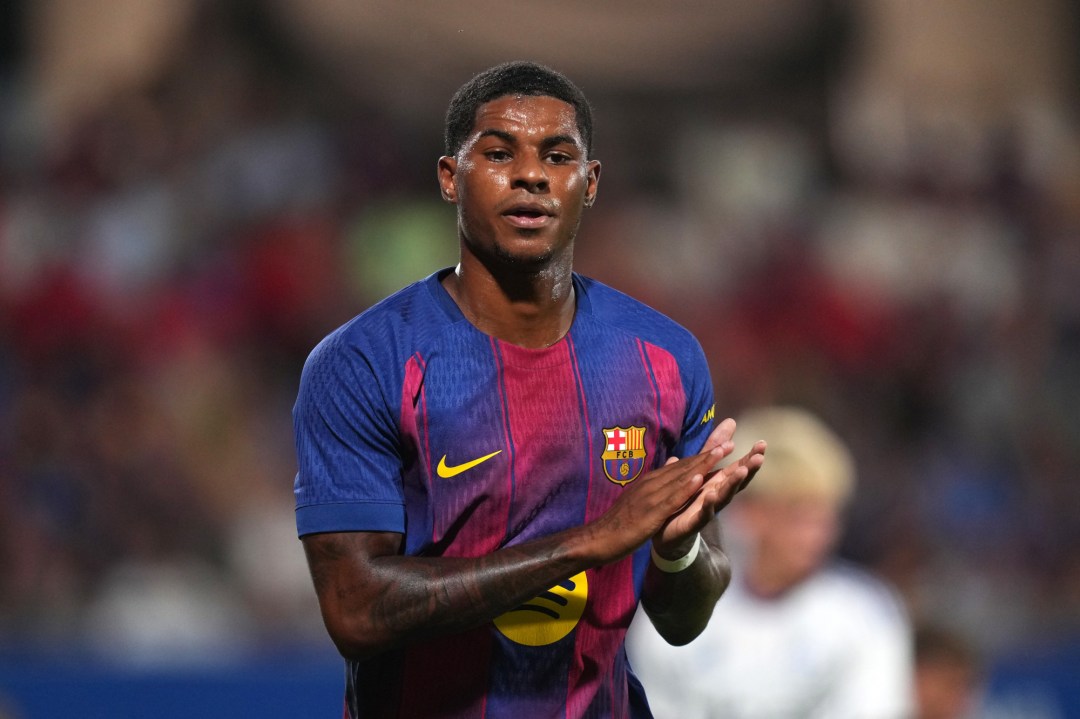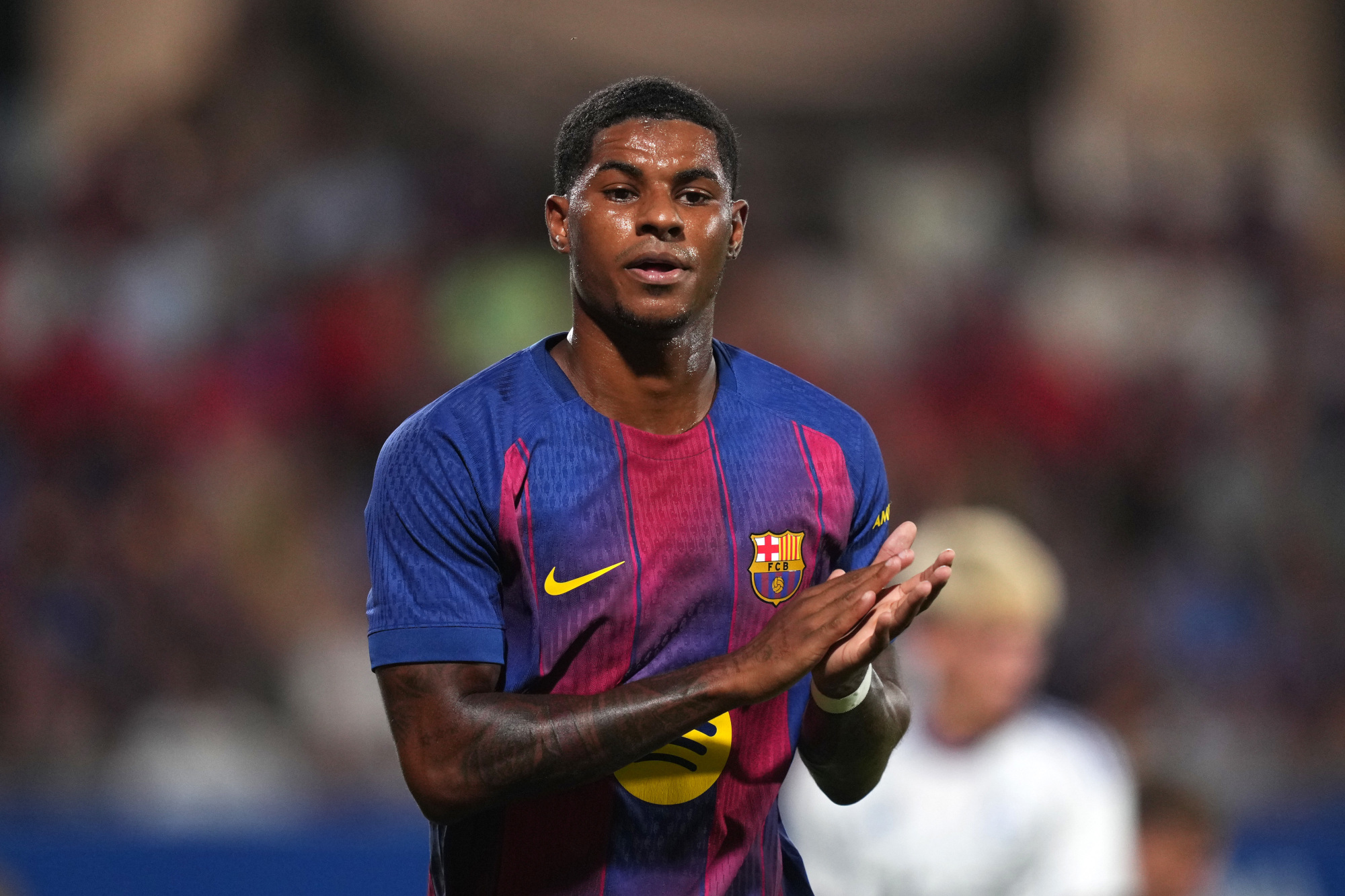Marcus Rashford, formerly of Manchester United, now of Barcelona, has opened up about his time at Old Trafford in a podcast interview with Gary Lineker (and an excitable Micah Richards) ahead of the start of the Spanish and English seasons on Friday. Despite Lineker interceding as often as possible to talk about his glory days in Spain (did you know he once played for Barcelona? and got a hat-trick against Real Madrid?) Rashford managed to get in some astute and revealing comments about the modern game and how topflight clubs (and one in particular) are often their own worst enemies.
It is refreshing to hear such honest and forthright views, expressed seemingly without so much bitterness as frustration
Rashford, who more than any other player witnessed the psychodrama of the post-Alex Ferguson Manchester United, pulled at the threads of the Gordian knot of his former club’s seemingly interminable malaise (United finished 15th last year losing 18 games in the process). Rashford seems to lay on the blame on a ‘reactionary’ (meaning reactive) mindset which saw managers fired before they had had sufficient time to establish any sort of system. Rashford saw nine different managers (full and caretaker) come and go and it seems to have been dizzying: for example Louis van Gaal wanted to play with flair, his successor Jose Mourinho just wanted to win at all costs and wouldn’t criticise or offer advice to Rashford on his off-days if United had still managed to win.
‘People say we’ve been in a transition, but the transition hasn’t started yet’, Rashford continued, using the present tense for his former club (he is still a fan). ‘You have to make a plan and stick to it. We’ve had that many different managers and that many different ideas that you end up in no man’s land… if your directions always changing, you can’t expect to win the league’. He highlighted the importance of having ‘principles’, such as existed during the fabled Fergie era and which permeated throughout the entire club, but, he believes, no longer do.
Another part of the problem it would seem is the at times hysterical denunciations of former players. Rashford took a swipe at the old pros (surely Gay Neville and Roy Keane) who have made a habit of seemingly unfiltered clickbaity rants about current players and teams. Rashford said he would never do that and had no interest in being a pundit post-retirement, despite Lineker’s rather unctuous assurances that he would make a great one.
Some might suggest a degree of inconsistency in Rashford’s argument. Managers may be dispensed with far too quickly but it could be argued that Rashford was given ample chances, perhaps even too many. He played 426 games for the club scoring 138 goals. At times he threatened to be the answer to the club’s prayers for a consistent bang-them-in-every-week striker in the mould of a van Nistelrooy, van Persie or Andy Cole, without ever quite nailing the role. He was finally farmed out to Villa last year from whence he has moved onto Barcelona in what many see as a somewhat generously offered and possibly final chance at the very big time.
Rashford perhaps doesn’t appreciate the enormous commercial pressures that top clubs face, with massive rewards and penalties for failing to secure a Champion’s League place, finishing in the bottom half of the league or God forbid relegation. With literally hundreds of millions at stake the pressure to fire a manager and possibly revitalise a team and thus save the season must be immense – and it wasn’t quite like that in the Fergie era. In that light, the decision to keep United’s current manager Ruben Amorim despite a nightmare season seems positively enlightened – Europa cup-winning Angelos Postecoglou was shown the door. The average tenure of a Premier League manager (according to a study by Issuu) is 1.42 years.
Still, it was refreshing to hear such honest and forthright views, expressed seemingly without so much bitterness as frustration, from a player who been criticised for lacking commitment but seems to have moved on. There was no mention of changing the world, his previous obsession, and Rashford looked to be fully focused on his career. He admitted to sometimes playing disappointingly at Manchester United and seemed committed to a fresh start (including language lessons) in Spain and cementing his place in the England squad ahead of next year’s World Cup.
As evidence of this, when Linker suggested Rashford had been overly criticised in the past because of his skin colour, Rashford refused to take the bait, preferring to stick to football matters. At a time when the FA has finally begun to unwind it’s long and lamentable association with Stonewall, and taking the knee, rainbow laces and arm bands appear to be on the way out, it was a further signal of a welcome change in the football zeitgeist.
As for Lineker, he will apparently soon present a quiz show called The Box. Many will be wishing all that woke baggage which he so enthusiastically championed could be put in one, which would then be securely sealed, and we could all get back to just talking about football.









Comments